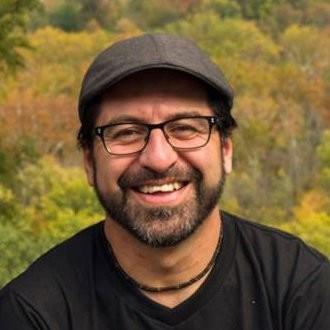Leadership and Career Change
By: Alec Masella
September 10, 2018

Executive Master of Natural Resources (XMNR) program alumnus Hugo Mogollon had been conducting fieldwork for nearly a decade in Ecuador for the nonprofit Finding Species, before deciding to pursue a managerial role within the organization, graduate school, and then a career change with Community Foodworks in Washington, D.C.
“My initial role in Finding Species was as a taxonomist, a scientist who groups plants into categories,” Mogollon explains. “I coordinated a team of photographers to capture images of Ecuadorian charismatic species so we could use them to steer public opinion to discourage companies from drilling for oil in Ecuador’s largest National Park. As a scientist, I wanted to draw attention to the biodiversity of the region.”
Over time, the Maryland-based nonprofit gave Mogollon the responsibility of managing projects and helping to develop the nonprofit organization. Not long after Hugo took on these additional roles, however, Finding Species was impacted by the recession and almost closed.
“Naturally, I fell in love with the work I did,” Mogollon says. “So when the philanthropy suffered, I wanted to broaden my responsibilities. I was successful. I got to work with donors and partner in the United States, and I raised money to not only sustain the organization but also grow it.”
Once Finding Species was returned to health, Mogollon wanted to take his career to the next level. After two years of internships and volunteer work with various biodiversity groups, he reached out to the XMNR program to gain the education and confidence needed to further advance his career.
“My success with Finding Species was a huge springboard into my career today,” he says. “But the XMNR program game me the skills I needed to take on bigger roles. The more I learned about the Center for Leadership in Global Sustainability (CLiGS), the more I realized it would be broad enough to provide knowledge in both program management and environmental resources.”
After enrolling in the XMNR program, Mogollon was immediately impressed by the diverse backgrounds of the other students, helping him become aware of environmental issues from a more expansive view. “One of the most rewarding things was being able to draw from other professionals’ experience and knowledge while working on real sustainability issues,” he recalls. The XMNR program helped him understand sustainability from a global perspective so he could confidently lead large groups of people through sustainability initiatives.

“I was passionate about working with the other students and professors,” he explains. “Everyone inspired me to love what I do, and I remember thinking that when I graduated I would love to stay involved with CLiGS, simply because of their organizational culture that seeks to bring out the best in students.”
A month before graduation, Mogollon accepted a position as the Food Access Program Director at the nonprofit Community Foodworks, a group dedicated to increasing food access for vulnerable communities while creating opportunities for family farmers in the mid-Atlantic region. Within a few months, he was promoted to Executive Director, where he continues to utilize leadership skills learned in the XMNR program to engage diverse stakeholders from the public and private sectors to carry out his organization’s mission.
“The XMNR program was extremely helpful in giving me the ability to advance my career in the nonprofit sector,” Mogollon says. “Throughout my time in CLiGS, I reflected on how to become the executive director of a large-scale organization, which was what I truly wanted to do. The program helped me to identify my career goals and lead me to an opportunity to do just that.”
During his cohort’s International Residency experiences in Morocco, which focused on waste management, and in Turkey, which focused on water management, Mogollon gained more insight into sustainability in the private sector. He then took those skills in business-to-business operations and applied them to his work with Community Foodworks.
“I was offered the Executive Director position not only for my experience,” he says. “My MNR degree gave me the leadership skills to take what I know about fieldwork, operations, and global issues, and bring them together to take on something bigger.”
Community Foodworks continues to grow and thrive.

---

Hugo Mogollon is the Executive Director at Community Foodworks, a DC-based non-profit organization. He has designed and implemented an innovative model for local food distribution in urban settings, the Pop Up Food Hub. In his first three years at Community Foodworks, he quadrupled the organization’s budget by diversifying revenue streams and creating multi-sector partnerships. Hugo has deep experience in NGO management, planning, development, outreach, and stakeholder engagement, particularly in multicultural settings. He has Master of Natural Resources (MNR) degree from Virginia Tech.


